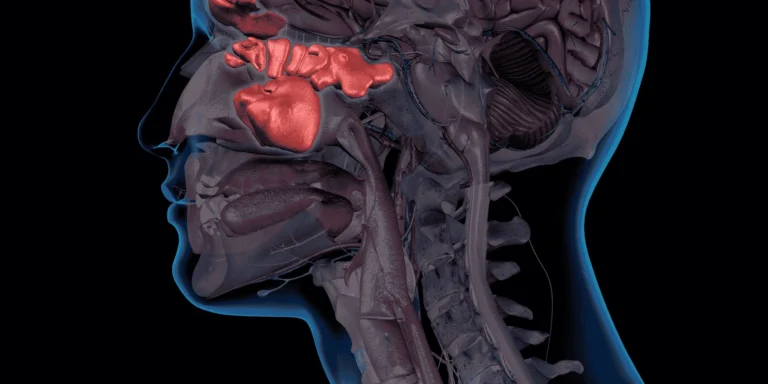My patient called on day 12 of his cough. “Doc, I’m still hacking up stuff. Shouldn’t this bronchitis be gone by now?”
His frustration was understandable. Acute bronchitis has a reputation for lingering longer than most people expect, and knowing what’s normal versus concerning can save you unnecessary worry — or help you recognize when medical attention is needed.
Typical Acute Bronchitis Timeline
Most cases of acute bronchitis follow a predictable course, though individual variation is common:
Days 1-3: Initial symptoms develop, usually following a cold or flu. You’ll notice a dry, irritating cough that may keep you awake at night. Mild fever and body aches are common.
Days 4-7: The cough becomes productive, bringing up clear, white, or yellowish mucus. This is actually a good sign — your airways are clearing infected debris. Chest discomfort and fatigue peak during this period.
Days 8-14: Fever and body aches typically resolve, but the cough persists. Mucus production may continue, though it often becomes less thick and easier to cough up.
Weeks 2-3: Most other symptoms disappear, but a dry, nagging cough can linger. This post-infectious cough results from airway irritation and inflammation that takes time to heal.
Complete recovery usually occurs within 3-4 weeks, though some people experience cough symptoms for up to 6-8 weeks.
Why Bronchitis Coughs Last So Long
The persistent cough frustrates patients more than any other bronchitis symptom. Here’s why it hangs around:
Airway inflammation doesn’t resolve immediately when the infection clears. Your bronchial tubes remain sensitive and react to minor irritants like cold air, dust, or even talking.
Damaged cilia need time to regenerate. These tiny hair-like structures normally sweep mucus and debris from your airways, but infection damages them temporarily.
Increased mucus production continues even as infection resolves. Your airways produce extra mucus to trap and remove remaining irritants and dead cells.
Hypersensitive airways react to stimuli that normally wouldn’t trigger coughing. This hypersensitivity gradually improves as inflammation subsides.
Factors That Affect Duration
Several elements influence how long your bronchitis lasts:
Age matters significantly — older adults and young children often experience longer recovery periods due to less robust immune responses or smaller airways.
Smoking status dramatically affects duration. Smokers typically have prolonged symptoms and slower healing due to ongoing airway irritation and impaired immune function.
Overall health influences recovery speed. People with asthma, COPD, heart disease, or immune system disorders may experience extended illness.
Environmental exposures like air pollution, allergens, or occupational irritants can prolong symptoms and delay healing.
When Acute Bronchitis Becomes Concerning
While most bronchitis resolves without complications, certain warning signs indicate you need medical evaluation:
High fever (over 101°F) that persists beyond the first week or develops after initial improvement suggests possible pneumonia.
Shortness of breath at rest or with minimal exertion isn’t typical of simple bronchitis and may indicate pneumonia or other complications.
Blood in sputum occasionally occurs with severe coughing, but persistent or increasing blood requires immediate evaluation.
Worsening symptoms after initial improvement, especially if accompanied by fever, suggest secondary bacterial infection or pneumonia development.
Severe chest pain beyond typical cough-related discomfort may indicate pneumonia or other serious conditions.
The Pneumonia Question
One of my most common questions is: “How do I know if my bronchitis became pneumonia?”
Bronchitis affects your bronchial tubes — the airways leading to your lungs. Symptoms include cough, mucus production, and chest discomfort, but breathing typically isn’t severely affected.
Pneumonia affects lung tissue itself, creating inflammation in the air sacs where oxygen exchange occurs. This causes more significant breathing difficulty, higher fevers, and often sharp chest pain.
Key differences:
- Pneumonia usually causes higher, more persistent fevers
- Shortness of breath is more pronounced with pneumonia
- Chest pain with pneumonia is often sharp and worsens with breathing
- Pneumonia patients typically feel much sicker overall
Treatment and Recovery Expectations
Most acute bronchitis is viral and doesn’t require antibiotic treatment. Focus on supportive care:
Rest and hydration help your immune system fight infection and thin mucus secretions.
Cough suppressants can provide nighttime relief, but don’t suppress productive coughs during the day as they help clear infected material.
Expectorants like guaifenesin can help thin mucus, making it easier to cough up.
Steam inhalation soothes irritated airways and helps loosen secretions.
Avoid smoking and other irritants that prolong healing.
When Antibiotics Might Help
While most bronchitis is viral, antibiotics may be beneficial if:
- You have COPD or other chronic lung conditions
- Symptoms persist beyond 2-3 weeks without improvement
- You develop signs of secondary bacterial infection
- You’re at high risk for complications due to age or health status
Managing the Lingering Cough
The post-bronchitis cough tests everyone’s patience. Here’s how to cope:
Honey can soothe throat irritation and may reduce cough frequency.
Avoid irritants like strong scents, cold air, and cigarette smoke.
Stay hydrated to keep remaining secretions thin.
Consider cough suppressants for nighttime use if cough disrupts sleep.
Return to Normal Activities
Most people can return to work or school once fever resolves and they feel well enough to resume normal activities. However, continue avoiding strenuous exercise until cough and fatigue completely resolve.
Listen to your body — pushing too hard too soon can prolong recovery.
The Bottom Line
Acute bronchitis typically lasts 2-3 weeks, with cough potentially persisting up to 6-8 weeks. While frustrating, this extended timeline is usually normal and doesn’t indicate complications.
However, high fever, shortness of breath, blood in sputum, or worsening symptoms after initial improvement warrant medical evaluation to rule out pneumonia or other serious conditions.
Most people recover completely with supportive care and patience, though the lingering cough can test your tolerance. Understanding what’s normal versus concerning helps you navigate this common but persistent condition.











